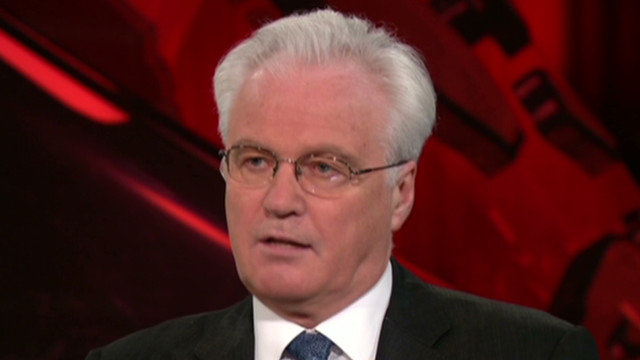Russian Ambassador Churkin: “as a matter of principle, we believe U.N. Security Council is not about regime change..”
In a U.S. television exclusive, Christiane Amanpour inteviewed the Russian Ambassador to the United Nations, Vitaly Churkin, for the Monday, April 23rd edition of Amanpour about why his nation continues to block U.N. efforts to bring stronger sanctions or even consider the use of peace-keeping forces to stem the bloodshed inside Syria:
AMANPOUR: You said that all conflicts end with a political deal. Obviously, it didn’t happen like that in Egypt, Mubarak stepped down. It didn’t happen like that in Libya, Gadhafi was killed. Yemen, perhaps it did. Tunisia, it didn’t happen. The president left.
You just raised something at the beginning. You called them regime changes. Is that Russia’s issue? Is that the — we’re trying to figure out the nub of your problem, why you don’t even agree to sanctions, why there is nothing held over the government’s head to force them to do what you want them to do? Is it about regime change?
CHURKIN: Well, they are sort of two different issues. First of all, as a matter of principle, we believe that the U.N. Security Council is not about regime change. We believe that should there — is there — if there was a crisis in a country, the role of international community should be to help the parties involved to find a political, peaceful way out of this crisis.
And when we saw some of the resolutions, which included sanctions, we knew that those were resolutions which were heading in the direction of regime change by force, which would, in turn, lead only to much more bloodshed in Syria because in contrast to Gadhafi, President Assad does have a strong armed force. He does have support among the population.
So this easy way, which incidentally in Libya, 32 — 50,000 people were killed. And the country is still in a very difficult state. So even in Libya, it was not a simple proposition at all. But in Syria, the national and regional consequences would have been dramatic. So we were against that kind of a scenario.
Amanpour airs weekdays on CNN International at 3:00pm with a replay at 5:00pm Eastern in the U.S. and at 21:00 CET, with a replay at 23:00 CET. This program will also be available via www.cnn.com/amanpour on Tuesday, April 24. The full transcript of this program may be found here.
###
